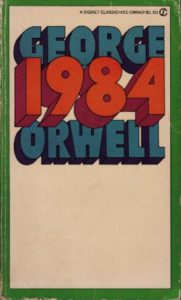How Can You Write at a Time Like This?
 A lot of writers I know have been struggling these past few months. Their fears about the future are on display, in their online posts and in their writing. Anxiety is rampant. So is insomnia. The news of the past two weeks has only heightened their concerns.
A lot of writers I know have been struggling these past few months. Their fears about the future are on display, in their online posts and in their writing. Anxiety is rampant. So is insomnia. The news of the past two weeks has only heightened their concerns.They are a diverse group: men and women, all the major religions, every race and generation. They live in the US and other countries. They write fiction and nonfiction, memoir and science fiction/fantasy, poetry and children’s literature.
And every one of them seems to be asking themselves the same question: How can you write at a time like this?
Writing almost seems superfluous, a luxury we can’t afford. We have to keep our eye on the news 24/7, to react and respond. For God’s sake, how can romance novels be important when 1984 is #1 on Amazon?
Oddly enough, I haven’t felt that way. Maybe it’s because I feel so driven these days. What’s going on in the world has not discouraged me from working on this book. If anything, it’s given me the encouragement I need to keep going.
A few writers I know are similarly focused. After all, people are still buying books, still reading books. And while most of the people who are reading 1984 right now probably hadn’t read it since high school – if then – they’re reading it for a reason.
To make sense of the world.
Now, how we do that varies. Some people seek out history books, to help them understand how the world has dealt with crisis situations in the past. Others seek out pure escapism, to simply close the door on what is so deeply overwhelming and disturbing.
It's not surprising that people would choose books that are very different than what they read a few months ago. But they haven’t stopped reading, haven’t stopped looking for answers and/or solace. That’s why writers must keep writing: to give their readers what they need.
My reading has been, and continues to be, research-driven, focusing mostly on the first fifteen years of the AIDS epidemic (1981-1996). It was as dark a time as I ever remember: fear, panic and hatred, all directed towards people who were dying the most horrific deaths any writer could imagine. One would think that would make me feel worse, given that many of those who survived those years are now at risk again.
But I find my research leaves me incredibly optimistic. I remember all the things – and people – who made that time a nightmare. But it got better. It took a long time and not everyone survived, but it got better. And that gives me hope.
It got better because of the men and women who didn’t give up: the researchers and activists and caregivers and others who gave their all. That’s what will get us through these times, as well: the men and women who don’t give up.
That includes writers. Writing – like parenting – leaves us wondering if what we’re doing makes a difference. Too often, we have no idea. But now and then, like a kid who gives you a spontaneous hug, a reader lets us know what our writing meant to them. And that makes it all worthwhile.
So, my writing friends, keep at it. Take a break, have a glass of wine, get out in the sun (if you’re lucky enough to have any), order dessert. Get some sleep. Revive your spirits. There are readers out there who need to hear what you have to say.
Giving people what they need in these uncertain times may turn out to be the most radical activism of all.

